Ominous new sight in China’s lockdown as big green fences are erected around Shanghai
Just when you thought China’s extreme lockdown couldn’t get any worse, an ominous new sight has appeared on the streets of Shanghai.
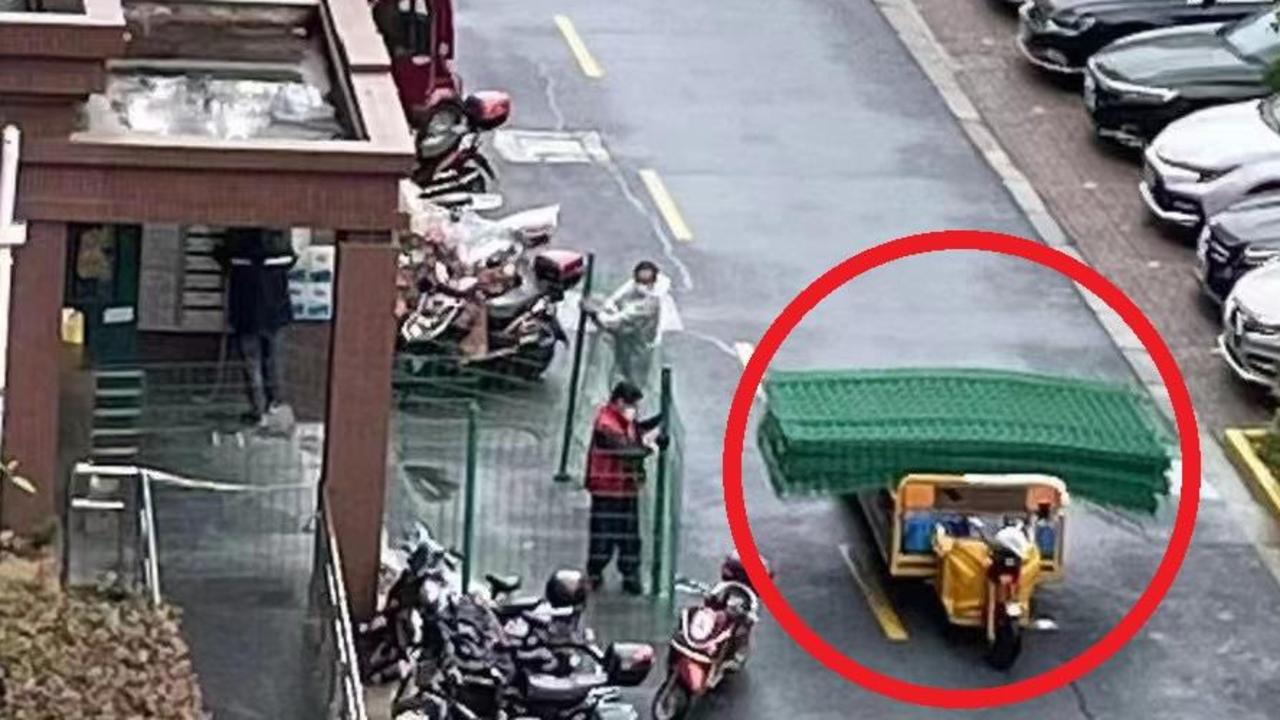
There are ominous signs emerging that show China’s ultra strict lockdown in Shanghai – which has already pushed the city’s 25 million residents to the brink – may be about to get a whole lot worse.
As the city posted its highest ever death toll from Covid-19 overnight, worrying images have begun to emerge of large green metal barriers being erected around the city.
Images on social media show how they have appeared without warning outside buildings where those inside are forbidden from leaving – taking many residents by surprise.
Other images show trucks loaded with green metal being driven into the city and the barriers being constructed by workers in white hazmat suits, who are known locally as the “big whites”.
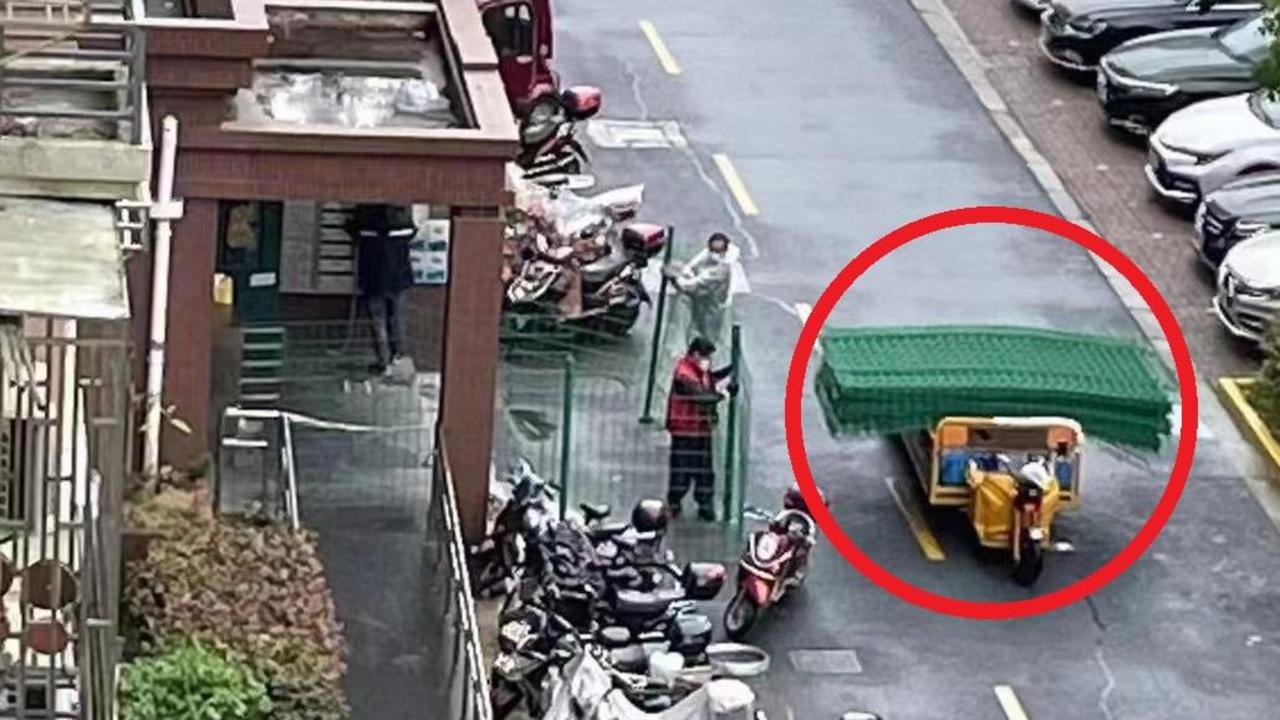
It is not the first time residents have been caught off-guard by authorities, with many reporting electronic alarm systems have been installed on their apartment doors in recent weeks to alert the powers that be if they try to leave.
Shanghai officials have also ordered all infected patients and their close contacts to be transferred to government-run centralised quarantine.
However, the two-metre high fences – which are being put up around buildings designated as “sealed areas” where at least one person has tested positive for Covid – are a worrying new sight in the city.
Anyone who lives in a sealed area cannot leave their homes whether or not they have the virus.
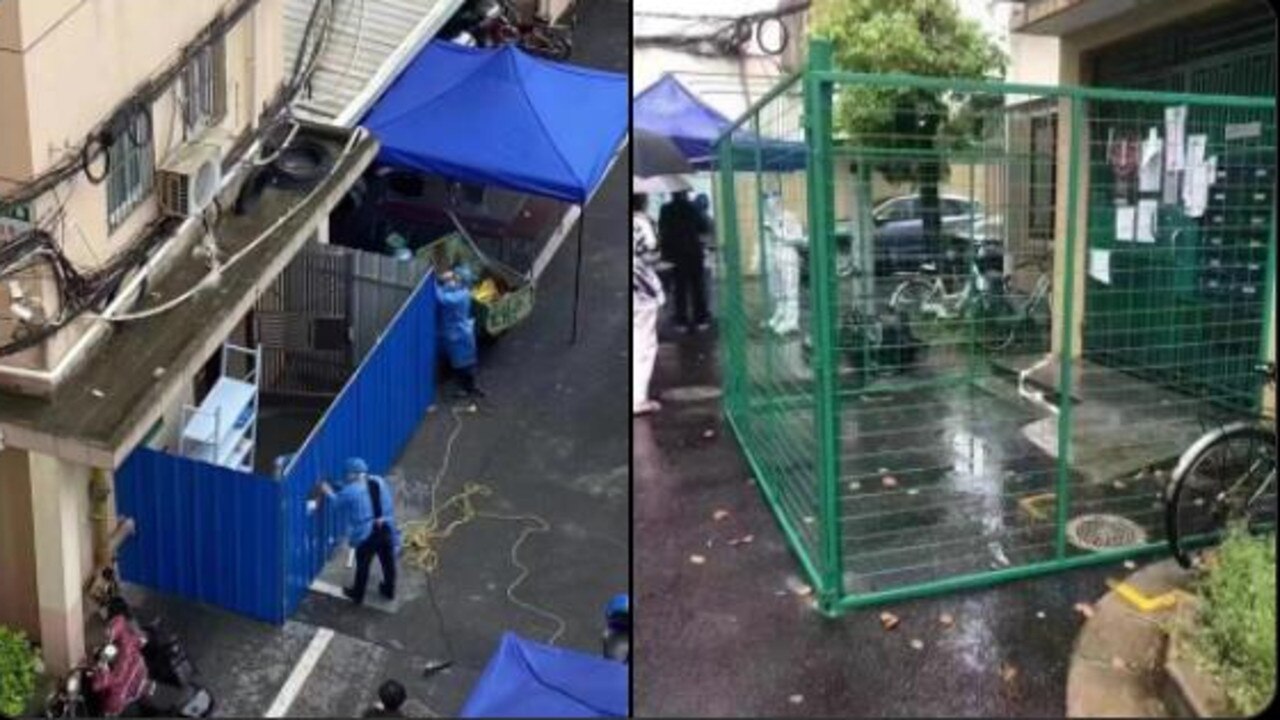
The escalation has occurred after one local authority said on Friday it was imposing “hard quarantine” in some areas.
A director of documentary films in China, Chris Pc, posted a thread on Twitter explaining what he had heard from local residents about the fences alongside a series of images.
“We all have heard stories of residents and even entire buildings refusing to go outside for mass testing. Some are fatigued, others fear that being together brings infection risks,” he wrote. “Some think sealed-off entrances like this are to separate these folks.
“The hope being that other residents of a community would not be punished for the lack of co-operation from a few. This might be wishful thinking.”
One of his images even shows a popular cafe being surrounded by a green fence.
“It’s usually extremely crowded on sunny weekend afternoons. To see these fences up with little official explanation is confusing a lot of people,” Chris Pc said.
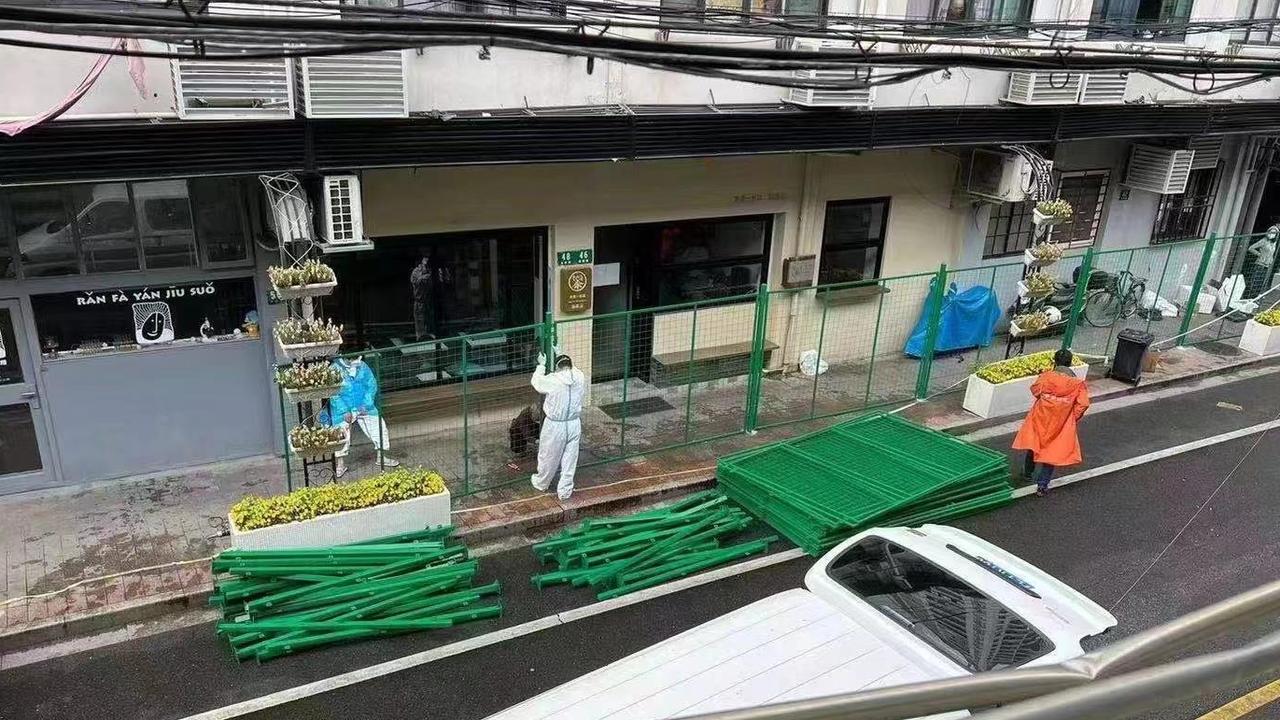
Another image, which he says is being shared around on Chinese social media, shows a convoy of trucks wheeling huge quantities of green fencing down a motorway.
He said residents are speculating about an even harder new lockdown in the city.
A foreign national living in Shanghai told the BBC that green fencing appeared outside his residential complex three days ago.
Chris Pc said the main gate to his compound was chained up three weeks ago after it was understood one of his neighbours tested positive for Covid.
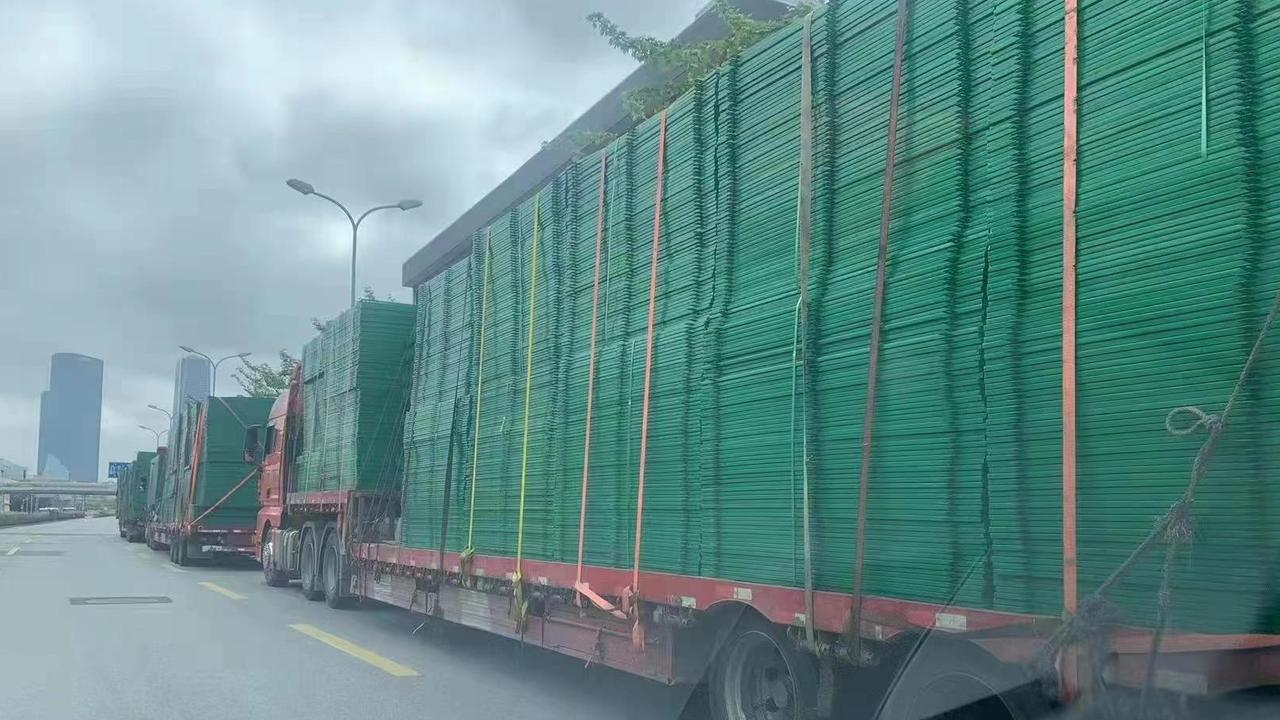
But on Thursday, he said workers installed a new barrier without any warning.
“There is a long corridor in our compound, and within the long corridor they put up another green fence three days ago,” he described on the phone.
“No one told us the reason it was installed. No one can get out. I feel helpless. You don’t know when the lockdown is going to end.”
City posts highest ever Covid death toll
Shanghai reported 39 Covid deaths on Sunday, its highest daily toll despite weeks of lockdowns, while China’s capital Beijing warned of a “grim” situation with rising infections.
The world’s second-largest economy has been struggling to stamp out its worst outbreak in two years with a playbook of harsh lockdowns and mass testing as it sticks to a strict zero-Covid policy, taking a heavy toll on businesses and public morale.
The cosmopolitan business hub of Shanghai has been almost entirely locked down since the start of the month, snarling supply chains, with many residents confined to their homes for even longer as it became the epicentre of the outbreak.
Shanghai Covid Stories: Barriers are being installed all over the city. Meanwhile their purpose hasn't been fully explained.
— chris pc (@chris__pc) April 24, 2022
A thread. pic.twitter.com/Vhnojz2cOR
China’s biggest city only announced its first fatalities from the outbreak on April 18, despite reporting thousands of cases each day in recent weeks.
It reported 39 more deaths on Sunday, National Health Commission data showed, bringing its total toll to 87, while the country logged nearly 22,000 new local virus cases.
Shanghai’s previous highest daily toll since lockdown was 12, reported a day earlier.
The city of 25 million has struggled to provide fresh food to those confined at home, while patients have reported trouble accessing regular medical care as thousands of health staff were deployed for Covid testing and treatment.
Health officials have warned of the particular risks of Covid to the country’s older and largely unvaccinated population, saying the average age among fatalities in Shanghai’s outbreak was 81.
Five of those who died had been vaccinated, though authorities have said the deaths involved people who had severe underlying diseases and who were in critical condition.
Doubts have been raised over the efficacy of China’s homegrown vaccines, and Beijing has not imported any foreign-made jabs.
Online backlash
Censors have battled to scrub an online backlash against the prolonged lockdown in Shanghai, including the rapid censorship of a viral video by residents outlining their daily challenges to eat and access essential services.
On Saturday evening, a residential building fire sparked fear and criticism on social media, given that many exits in compounds have generally been sealed as part of Covid controls.
Meanwhile, 22 more infections were reported in Beijing on Sunday, with the capital locking down one downtown housing compound as officials warned the situation was “grim and complex”.
Health official Pang Xinghuo said preliminary observations suggested Covid had been “spreading invisibly” in the city for a week, “increasing the difficulty of prevention and control”.

Nearly a quarter of Beijing’s active cases are people over 60, and half of the infected seniors have not received Covid vaccines, Ms Pang said.
The populous eastern district of Chaoyang said it would expand Covid testing, adding that it had indefinitely banned extra-curricular in-person classes or sports activities.
Many of the capital’s fitness studios and gyms had already cancelled classes or closed.
Beijing has also imposed tight controls on entry to the city, with travellers required to have a negative Covid test from within 48 hours.
People who have travelled to cities or counties where just a single Covid case has been reported in the past two weeks are barred entry.






